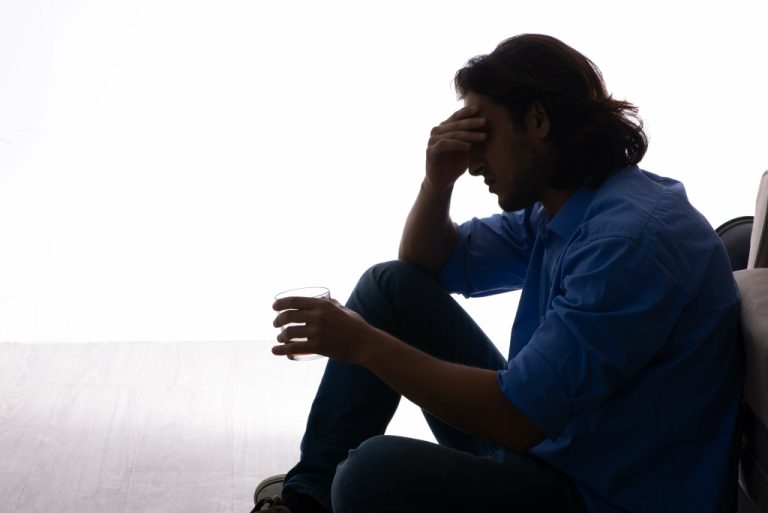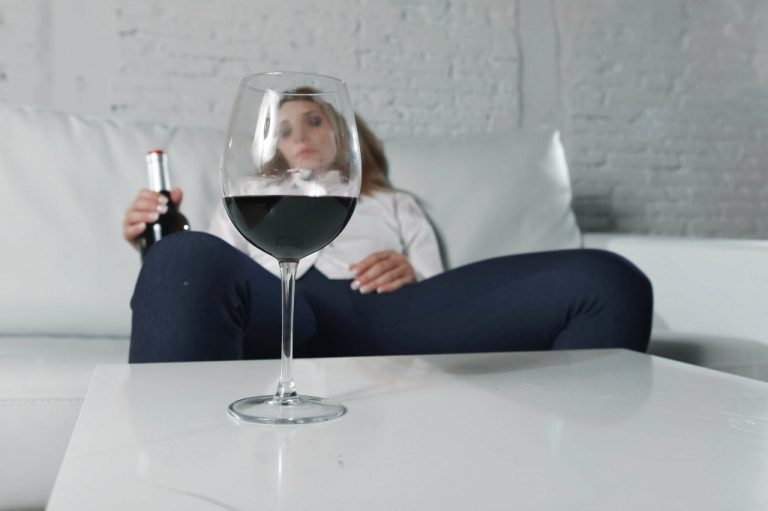The physical effects of withdrawal combined with poor sleep quality can make your anxiety feel much worse both during and after heavy drinking episodes. Evidence for the substance-induced hypothesis comes from multiple sources. A central prediction of this causal model is that abstinence from alcohol should be followed closely by a conspicuous decrement in anxiety symptoms. Data from a study of 53 patients who participated in alcohol treatment at a residential substance abuse program were consistent with this prediction (Kushner et al. 2005). Thus, among those 23 patients who had an anxiety disorder at baseline and remained abstinent after approximately 120 days, 61 percent no longer met criteria for an anxiety disorder at follow-up. Another study with 171 male veterans demonstrated that self-reported measures of temporary anxiety (i.e., state anxiety) decreased rapidly during inpatient alcohol treatment (Brown et al. 1991).

Anxiety Disorders
Additionally, because alcohol can cause dehydration, it may speed up the metabolism of antidepressants, making them less effective. This can result in your body not receiving the full benefits of the medication, leading to slower progress Halfway house in treating your mental health condition. Many antidepressants need time to build up in your system to reach their full effect, and drinking alcohol can disrupt this process.
Top Effective Rehab for Depression & Dual Diagnosis Treatment

However, this relief is often short-lived and can lead to more severe anxiety symptoms once the effects of alcohol wear off. Treating co-occurring alcoholism and depression requires a multifaceted approach that addresses both conditions simultaneously. While SSRIs and SNRIs are often the first-line antidepressants for individuals with alcohol use disorder, the choice of medication should be tailored to each person’s specific needs and medical history.
Anxiety Shot: A Comprehensive Guide to Injectable Treatments for Anxiety…
- Universal screening, careful prescribing choices, and patient education can help minimize the risks of combining alcohol with certain medications.
- However, in society today, there isn’t a single medication for anxiety treatment.
- The longer a person misuses stimulants and alcohol together, the higher the risk becomes of developing substance use disorders.
- Side effects like drowsiness, impaired driving, and respiratory depression (slowed breathing) can worsen when alcohol and anxiety meds are mixed.
- The first group includes those who drink alcohol to self-medicate anxiety.
Yes, alcohol can reduce the effectiveness of antidepressants by interfering with how they are absorbed and metabolized in the body. If you have any questions or concerns about your treatment or need support for substance use, don’t hesitate to contact Pacific Shores Recovery. Feeling anxious gives us motivation, helps us figure out what matters to us, and gives us the energy to carry out those tasks. Anxiety can become a disorder, however, when it causes an inordinate amount of distress and impairs your ability to function in some or all aspects of your life. This seems all well and good until one feels a need to drink to relax or have fun.

How common is this?
- While alcohol initially acts as a sedative, helping people fall asleep faster, it disrupts the sleep cycle, particularly REM sleep, leading to fragmented and non-restorative sleep.
- When I was younger and just I wasn’t able to speak to anyone—especially women—alcohol provided that lubricant that I needed at the time.
- Millions of people have changed their relationship with substances, cut back on how much they’re using, or stopped using altogether.
- Some medication and alcohol interactions can be dangerous, so always check with your healthcare provider first.
If one of our articles is marked with a ‘reviewed for accuracy and expertise’ badge, it indicates that one or more members of our team of doctors and clinicians does alcohol give you anxiety have reviewed the article further to ensure accuracy. This is part of our ongoing commitment to ensure FHE Health is trusted as a leader in mental health and addiction care. Long-time benzodiazepine users develop a tolerance for the drug, meaning they must take more of it more often to achieve the desired effects.
Anti-Anxiety, Anti-Seizure, and Epilepsy Medications
This may help you to reduce the amount of time you spend feeling anxious and, again, could make you feel more in control. When you meet with your doctor, it’s important that you’re as honest as possible about your symptoms. Though it may be difficult to talk about your anxieties, the more information you can give your doctor, the more accurate their diagnosis will https://enisson.co.in/wet-brain-from-alcohol-wernicke-korsakoff-syndrome/ be.
The literature for treating dual problem specifies three primary approaches, including the sequential, parallel, and integrated models (for a comparison, see table 3). Consequently, when it has been determined that an anxiety disorder likely is substance induced it may not be the best approach to simply treat the AUD alone and wait for the subsequent remission of the anxiety disorder. Medication-Assisted Treatments (MAT) for substance use disorders and mental health disorders are commonly used in conjunction with one another. Sometimes, the pressures and problems in your life lead you to rely on substances to help you forget about them momentarily.
